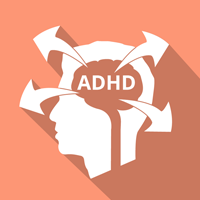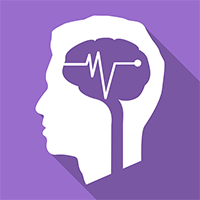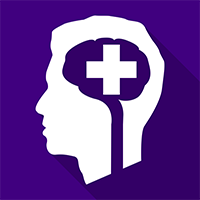-
 ADHD is a chronic condition that creates a range of persistent symptoms such as difficulty sustaining attention, hyperactivity and impulsive behaviour. The course covers the definitions of ADHD, the different types of ADHD and how to recognise some key signs and symptoms. Beyond this the course will look at some of the possible causes of ADHD, how it is diagnosed and how it can be treated, including environmental changes, types of therapy and medication that can be prescribed. Approved by CPD – Duration 45 mins*
ADHD is a chronic condition that creates a range of persistent symptoms such as difficulty sustaining attention, hyperactivity and impulsive behaviour. The course covers the definitions of ADHD, the different types of ADHD and how to recognise some key signs and symptoms. Beyond this the course will look at some of the possible causes of ADHD, how it is diagnosed and how it can be treated, including environmental changes, types of therapy and medication that can be prescribed. Approved by CPD – Duration 45 mins* -
 This course will provide you with an understanding of what autism is and how it affects a child’s daily life. It will touch on what factors contribute towards a child developing autism as well as some of the typical behaviours associated with it and how to can provide effective support for those with the condition. It also discusses what happens during the diagnosis process, some of the intervention methods that can help manage the condition and suggests some simple adaptations you can make to improve a child with autism’s day to day life. Approved by CPD – Duration 30 mins*
This course will provide you with an understanding of what autism is and how it affects a child’s daily life. It will touch on what factors contribute towards a child developing autism as well as some of the typical behaviours associated with it and how to can provide effective support for those with the condition. It also discusses what happens during the diagnosis process, some of the intervention methods that can help manage the condition and suggests some simple adaptations you can make to improve a child with autism’s day to day life. Approved by CPD – Duration 30 mins* -
 Diabetes is a serious lifelong health condition that occurs when the amount of glucose, or sugar, in the blood is too high. If left untreated, high blood glucose levels can cause serious health complications. This course is aimed at people working in the health and social care sector and will provide an overview of the condition, the common symptoms that might indicate someone has diabetes, methods of diagnosis, some possible treatments and common complications that can affect those with the condition. Approved by CPD – Duration 45 mins*
Diabetes is a serious lifelong health condition that occurs when the amount of glucose, or sugar, in the blood is too high. If left untreated, high blood glucose levels can cause serious health complications. This course is aimed at people working in the health and social care sector and will provide an overview of the condition, the common symptoms that might indicate someone has diabetes, methods of diagnosis, some possible treatments and common complications that can affect those with the condition. Approved by CPD – Duration 45 mins* -
 This course will give you an overview of epilepsy. It lists the methods of diagnosis, what a seizure is and how the brain can be affected. It will introduce some possible seizure triggers and describe what to do when someone has a seizure. It will also discuss some of the treatments offered to people with epilepsy and provide practical advice on what you can do if you witness someone having a seizure. Approved by CPD – Duration 30 mins*
This course will give you an overview of epilepsy. It lists the methods of diagnosis, what a seizure is and how the brain can be affected. It will introduce some possible seizure triggers and describe what to do when someone has a seizure. It will also discuss some of the treatments offered to people with epilepsy and provide practical advice on what you can do if you witness someone having a seizure. Approved by CPD – Duration 30 mins* -
 This course aims to provide a gentle introduction to the expectations of the Early Years Foundation Stage and it can also act as a refresher for those wanting to update their knowledge. It will introduce you to some of the key documents and legislation that relate to Early Years providers, the process for registering with Ofsted and the various policies and procedures that need to be in place. It also covers learning and development requirements, how to observe and assess the progress of children in your care and the safeguarding and welfare requirements laid out in the EYFS Framework. Approved by CPD – Duration 60 mins*
This course aims to provide a gentle introduction to the expectations of the Early Years Foundation Stage and it can also act as a refresher for those wanting to update their knowledge. It will introduce you to some of the key documents and legislation that relate to Early Years providers, the process for registering with Ofsted and the various policies and procedures that need to be in place. It also covers learning and development requirements, how to observe and assess the progress of children in your care and the safeguarding and welfare requirements laid out in the EYFS Framework. Approved by CPD – Duration 60 mins* -
 This course explains the difference between mental health and mental illness. It covers the symptoms of a number of the most common mental illnesses so you will know what to look out for or what to expect if you are working with someone with one of these conditions. As well as providing some practical advice on how you can work effectively with those affected by these conditions.
This course explains the difference between mental health and mental illness. It covers the symptoms of a number of the most common mental illnesses so you will know what to look out for or what to expect if you are working with someone with one of these conditions. As well as providing some practical advice on how you can work effectively with those affected by these conditions.Mental Health Awareness Course Modules
What is mental illness and prevalence rates Symptoms of Bi-Polar, depression, psychotic disorders and schizophrenia Symptoms of anxiety, personality disorder, self-harming Approved by CPD – Duration 25 mins* -
 The internet has changed our lives both personally and commercially. The boundaries between personal and business communication are now much less defined. Three-quarters of us in the developed world use the internet and Social media has become a serious business marketing technique with over 90% of businesses with an in‐house marketing department using social media for marketing and committing up to 20% of marketers time in that direction. So far as your social media audience is concerned, 43% of people aged 20‐29 spend more than 10 hours a week on social media sites. The starting point in any social media activity for business is your website or microsite and your social media activities will invariably be referencing this site so the first measurement of success in your social media activity will be the traffic you’re generating for your site through social media channels. This Social Media for Business E-Learning course is a great induction course in relation to using Social Media for your Business needs as it covers a wide range of topics in some detail. This Social Media for Business E-Learning course is designed to assist people in business to understand how social media techniques can be used as an effective business marketing tool. The online Social Media for Business course objective is to provide sufficient information to enable you to develop a social media strategy for a business and implement that strategy personally or through the informed engagement of third party specialists.
The internet has changed our lives both personally and commercially. The boundaries between personal and business communication are now much less defined. Three-quarters of us in the developed world use the internet and Social media has become a serious business marketing technique with over 90% of businesses with an in‐house marketing department using social media for marketing and committing up to 20% of marketers time in that direction. So far as your social media audience is concerned, 43% of people aged 20‐29 spend more than 10 hours a week on social media sites. The starting point in any social media activity for business is your website or microsite and your social media activities will invariably be referencing this site so the first measurement of success in your social media activity will be the traffic you’re generating for your site through social media channels. This Social Media for Business E-Learning course is a great induction course in relation to using Social Media for your Business needs as it covers a wide range of topics in some detail. This Social Media for Business E-Learning course is designed to assist people in business to understand how social media techniques can be used as an effective business marketing tool. The online Social Media for Business course objective is to provide sufficient information to enable you to develop a social media strategy for a business and implement that strategy personally or through the informed engagement of third party specialists.Social Media For Business Modules
Introduction What is Social Media? Introduction to POST Methodology Websites and Microsites Facebook LinkedIn Twitter Blogging Video Bringing it all Together Is Social Media Worth It? Approved by CPD – Duration 100 mins* -
 Right now, potential customers will be searching for your products and services ‐ and if they don’t find their way to your site, you could be deferring them to a competitor. Imagine if your website could rank above your competitors’, using the kind of search terms that turn your visitor traffic into revenue. When it’s done well, search engine marketing can give search engines exactly what they need to put your website in a prime position on Search Engine Results Pages. The key is understanding what search engines need ‐ and since 90% of all searches in the UK are via Google, this pretty much means understanding Google. This online Search Engine Optimisation E-Learning course will explain the proven techniques that will help you reach and maintain the number one results spot. This Search Engine Optimisation for Business E-Learning course is a great induction course in relation to using Search Engine Optimisation for your Business needs as it covers a wide range of topics in some detail.
Right now, potential customers will be searching for your products and services ‐ and if they don’t find their way to your site, you could be deferring them to a competitor. Imagine if your website could rank above your competitors’, using the kind of search terms that turn your visitor traffic into revenue. When it’s done well, search engine marketing can give search engines exactly what they need to put your website in a prime position on Search Engine Results Pages. The key is understanding what search engines need ‐ and since 90% of all searches in the UK are via Google, this pretty much means understanding Google. This online Search Engine Optimisation E-Learning course will explain the proven techniques that will help you reach and maintain the number one results spot. This Search Engine Optimisation for Business E-Learning course is a great induction course in relation to using Search Engine Optimisation for your Business needs as it covers a wide range of topics in some detail.Search Engine Optimisation for Business Modules
Introduction to SEO Link Building On‐Site SEO Social Media as part of SEO Local Search Pay Per Click (PPC) Approved by CPD – Duration 80 mins* -
 The General Data Protection Regulation (GDPR) is designed to strengthen and unify data protection principles for all individuals within the European Union and the European Economic Area. The GDPR is an incredibly important change to data privacy regulations. Understanding its correct implementation is vital for all UK businesses and organisations, particularly for staff who regularly deal with personal data. This online Introducing GDPR E-Learning course is designed specially for those front line staff and provides a clear introduction to the main elements of the GDPR, including compliance and the consequences of non-compliance. The Introducing GDPR e-learning course explains the roles of key players – Data Protection Officers, Data Controllers, Data Protection Leads and Data Processors and covers the main categories of personal data, along with the six lawful bases for processing data, and how to audit the data your organisation holds. Other topics examined include the Seven Principles of the GDPR and the Eight Rights for Individuals, along with the importance of your Privacy Policy – how to construct one, and how to use it effectively when dealing with data subjects. Finally, there’s important information on data breaches; how to avoid them, what to do if one is discovered and how to file a breach report.
The General Data Protection Regulation (GDPR) is designed to strengthen and unify data protection principles for all individuals within the European Union and the European Economic Area. The GDPR is an incredibly important change to data privacy regulations. Understanding its correct implementation is vital for all UK businesses and organisations, particularly for staff who regularly deal with personal data. This online Introducing GDPR E-Learning course is designed specially for those front line staff and provides a clear introduction to the main elements of the GDPR, including compliance and the consequences of non-compliance. The Introducing GDPR e-learning course explains the roles of key players – Data Protection Officers, Data Controllers, Data Protection Leads and Data Processors and covers the main categories of personal data, along with the six lawful bases for processing data, and how to audit the data your organisation holds. Other topics examined include the Seven Principles of the GDPR and the Eight Rights for Individuals, along with the importance of your Privacy Policy – how to construct one, and how to use it effectively when dealing with data subjects. Finally, there’s important information on data breaches; how to avoid them, what to do if one is discovered and how to file a breach report.Introducing GDPR Modules
Introduction Data Processing Types of Data Data Subjects’ Rights Data Breaches Approved by CPD – Duration 60 mins* -
 In order to ensure that new and expectant mothers in early years provision and schools can work without unacceptable risks to their health and safety, employers must be aware of:
In order to ensure that new and expectant mothers in early years provision and schools can work without unacceptable risks to their health and safety, employers must be aware of:- any female workers who may be of child-bearing age
- the effects of the physiological, hormonal and psychological changes that occur during pregnancy and the postnatal nursing period
- any work activities, or aspects of the workplace, which may pose a particular risk to new and expectant mothers.
-
 One in four people in the UK will have a mental health problem at some point. While mental health problems are common, most are mild, tend to be short-term and are normally successfully treated, with medication, by a GP. Mental health is about how we think, feel and behave. Anxiety and depression are the most common mental health problems. They are often a reaction to a difficult life event, such as bereavement, but can also be caused by work-related issues. In 2017, the government commissioned Lord Stevenson and Paul Farmer (Chief Executive of Mind) to independently review the role employers can play to better support individuals with mental health conditions in the workplace. The ‘Core Standards’ recommend employers of all sizes can and should put in place:
One in four people in the UK will have a mental health problem at some point. While mental health problems are common, most are mild, tend to be short-term and are normally successfully treated, with medication, by a GP. Mental health is about how we think, feel and behave. Anxiety and depression are the most common mental health problems. They are often a reaction to a difficult life event, such as bereavement, but can also be caused by work-related issues. In 2017, the government commissioned Lord Stevenson and Paul Farmer (Chief Executive of Mind) to independently review the role employers can play to better support individuals with mental health conditions in the workplace. The ‘Core Standards’ recommend employers of all sizes can and should put in place:- Produce, implement and communicate a mental health at work plan that promotes good mental health of all employees and outlines the support available for those who may need it
- Develop mental health awareness among employees by making information, tools and support accessible
- Encourage open conversations about mental health and the support available when employees are struggling, during the recruitment process and at regular intervals throughout employment, offer appropriate workplace adjustments to employees who require them
-
 We have an obligation to undertake an Individual Risk Assessment for any individuals with additional needs who work for us or attend our facilities. Our FREE template and guidance notes will enable you to sit down with the individual, or their parent/carer, and undertake a Risk Assessment to assist in providing the most appropriate care.
We have an obligation to undertake an Individual Risk Assessment for any individuals with additional needs who work for us or attend our facilities. Our FREE template and guidance notes will enable you to sit down with the individual, or their parent/carer, and undertake a Risk Assessment to assist in providing the most appropriate care.
